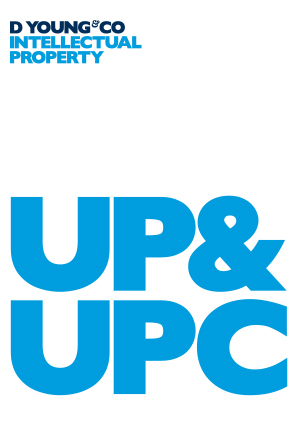UPC favours SMEs for language change: claimants ordered to sue in the language of the granted patent
Two orders from the UPC Courts of First Instance suggest claimants will not be able to cause trouble for SMEs by suing in a language other than that in which the patent was granted.
Since publishing this article, the UPC Court of Appeal in Curio Biosciences v 10x Genomics has ordered a change of language of proceedings to English, the language in which the patent granted. This request was rejected at first instance. Circumstances including the smaller size of Curio Biosciences versus 10x Genomics factored into the Court of Appeal’s decision.
A detailed analysis will soon be published on our website: www.dyoung.com/upandupc
Before the Unified Patent Court (UPC), Rule 323 of the UPC Rules of Procedure allows an application to be made for changing the language of proceedings to that in which the patent was granted. In the majority of cases European patents are granted in English.
Two similar orders of the UPC Courts of First Instance have issued in relation to such applications (UPC_CFI_239/2023 and UPC_CFI_373/2023). The initial chosen language of proceedings (Dutch and German) was unfamiliar to both defendants, which are SMEs. Therefore, the defendants applied to change the language of proceedings to English, the language in which the patents were granted.
The judge-rapporteur forwards such applications to the President of the Court of First Instance, who should invite the other party to indicate its position on the application within ten days. Having consulted the division, the President of the Court of First Instance may order the language of proceedings to be changed to the language in which the patent was granted, and this can be conditional on specific translation or interpretation arrangements.
Admissibility
Rule 323 of the UPC Rules of Procedure states that an application for change of the language of proceedings shall be included in the statement of claim or defence, in accordance with Article 49(5) of the Agreement on a UPC (UPCA). Neither of the applications were included in the statement of defence. However, both applicants argued that Article 49(5) UPCA does not include a time frame, and that Rules 321 and 322 of the UPC Rules of Procedure allow both parties, and the judge-rapporteur, to propose such a language change “at any time during the written procedure”. The applicants also argued that the UPCA shall prevail in case of conflict with the UPC Rules of Procedure, and requiring the application to be made in the statement of defence goes against the principles of proportionality, flexibility, fairness and equity, as set out in the Preamble of the UPC Rules of Procedure.
In both cases, the court asserted that Article 49(5) UPCA shall not be interpreted as precluding an application pursuant to Rule 323 of the UPC Rules of Procedure from being filed before the statement of claim/defence. Such an interpretation was considered to slow down proceedings, and go against the general aims of the UPC.
Instead, the courts decided that “‘in the statement of claim/defence” of Rule 323 of the UPC Rules of Procedure should be understood as the deadline by which the application needs to be made.
Rules 7.1 and 14.4 of the UPC Rules of Procedure specify that written pleadings and other documents should be filed in the language of proceedings, and that the registrar should return any pleading lodged in a different language.
In the second case, however, the application was deemed admissible despite being filed in English, instead of the current language of proceedings. This was because the registry had not returned the application, and no further reason to reject it as inadmissible had been identified.
Merits
On the merits, the applicants argued that they are small companies facing disproportionate and unnecessary financial burden through considerable translation costs, whereas the UPC system aims to make European patent litigation affordable for SMEs.
In contrast, the respondents are much larger companies, either using English as a working language (in the first case) or being well-equipped to conduct the main proceedings in English (in the second case). In fact, English had already been used in both cases for correspondence and/or submissions, and the respondents had considered translation into Dutch/German to be unnecessary.
The applicants also argued that it would be valuable to use the language in which the patent granted for legal discussion in the main proceedings.
In the first case, the respondents argued that there is no disproportionate, unnecessary burden and disadvantage suffered by the applicant, particularly as translation tools are available. In addition, the judges and most of the applicant’s representatives speak Dutch, so oral proceedings should be held in Dutch.
The respondents also argued that the claimant has the option to choose the language in which they want to litigate, Dutch being the obvious choice in this case, with Dutch representatives acting before the Dutch local division of the UPC.
In the second case, the respondent argued that the advantages of keeping the current language should be weighed against the inconveniences, with changes of language only being made under very particular circumstances and exceptional situations. Unlike in the first case, they argued that claimants do not get to pick their language of choice, instead, the language of proceedings is limited to that of the local division having jurisdiction, resulting from the circumstances of the case, including where incriminated products are distributed.
The respondent argued that the protection for SMEs should not apply to the applicant, who sells worldwide, and offers information and support in different languages including German. In addition, the respondent argued that German is a foreign language for both parties, and the fact that a translation of the statement of claim was provided does not mean it would be advantageous for the respondent to change the language of proceedings to English.
The respondent also argued that the nationality and native language of the judges should be considered, to ensure a high quality decision.
In both cases, the court decided that whether to change or not change the language of proceedings shall be determined with regard to the respective interests at stake, without it having to constitute a disproportionate disadvantage. When considering all the relevant circumstances, it may be sufficient that the language initially chosen is significantly detrimental to the applicant.
In the first case, the court agreed that the use of English would not affect the interests of the respondents, whereas being sued in an unfamiliar language is an important inconvenience for the applicant. Even if they have Dutch representatives and translation tools available, considerable time and costs are involved. Moreover, the respondents had not given a particular justification for disagreeing to the requested change.
In the second case, the court agreed that an important goal of the UPCA is to take into account the situation faced by SMEs, which have difficulties enforcing their patents and defending themselves. The court considered there would be a significant imbalance in this case, even though German is equally unfamiliar to both parties.
Moreover, the court would not consider the nationality and native language of the judges in relation to the quality of the decision, because English is an official language of the division, and the one most generally used by the judges to communicate and work.
Therefore, in both cases, the application to change the language of proceedings to English was granted. This was not conditional on any specific translation or interpretation arrangements, as the applicants had not requested translation of the existing documents.
Comment
UPC infringement actions can be brought before the local or regional division where the alleged infringement has occurred, or where one of the defendants has its residence or a place of business. Therefore, if an alleged infringement takes place in multiple countries, or there are multiple defendants based in different countries, a claimant is able to forum shop – picking where they wish to litigate.
Based on these orders, however, claimants should not assume they will be able to cause trouble for SMEs by forum shopping and suing in a language other than that in which the patent was granted. In most cases, this is English, which is an available language of proceedings for all divisions of the UPC, and currently used in 45% of First Instance proceedings.
The remaining proceedings are using German (47%), French (3%), Italian (3%) and Dutch (2%). Given that the large majority of proceedings are using German and English, we at D Young are in an excellent position to represent our clients before the UPC.
Related article
For our most recent commentary on statistics from the UPC please see our article: “UPC insights: trends from the January 2024 caseload report”, published 28 February 2024.
Case details at a glance
Decision level: Court of First Instance, The Hague
Case number: UPC_CFI_239/2023
Parties: Arkyne Technologies SL v Plant-e Knowledge BV & Plant-e BV
Type of action: Application for change of the language of proceedings to the language in which the patent was granted
Date: 18 October 2023
Decision: dycip.com/upc-cfi-239-2023
Decision level: Court of First Instance, Düsseldorf
Case number: UPC_CFI_373/2023
Parties: Aarke AB v SodaStream Industries Ltd
Type of action: Application for change of the language of proceedings to the language in which the patent was granted
Date: 16 January 2024
Decision: dycip.com/upc-cfi-373-2023

